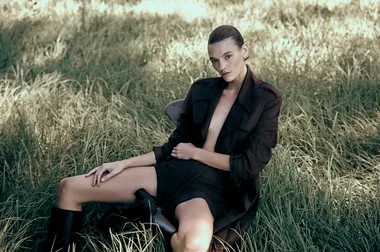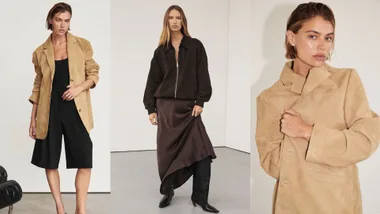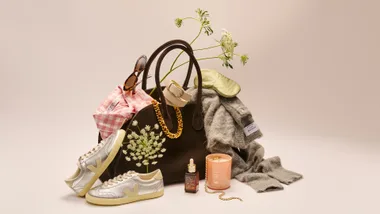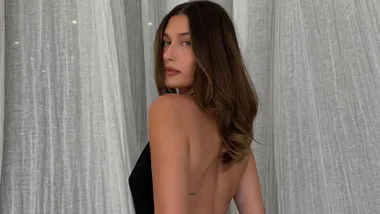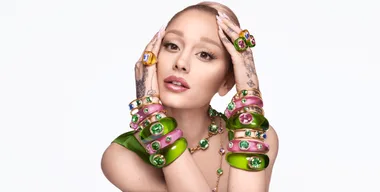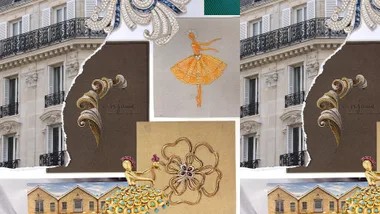The world is a little less bright today. Sonia Rykiel, the French fashion designer known for her sexy, bright knitwear and use of Liquorice Allsorts stripes, has died after a long battle with Parkinson’s disease. She was 86.
In recent years her angular cheekbones and distinctive trapeze-shaped red hair have been noticeably absent from her runways – her daughter Nathalie took over as creative director in 1995 – but her presence remains strong through the house’s clothes, which are instantly recognisable by their slinky sinuousness and electric bright colours. Key silhouettes include long-line rib knits, those ‘70s V-necks that demanded braless-ness and mid-length skirts – she was one of the first designers to abandon the mini at the end of the ‘60s.
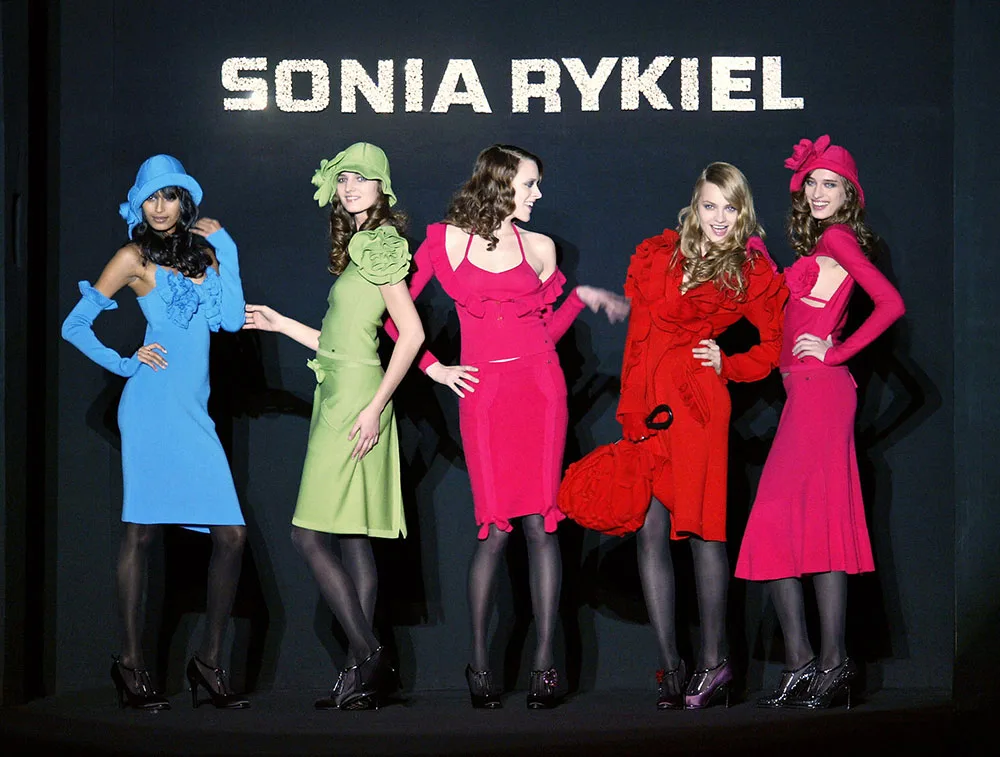
The Rykiels have often adorned sweaters with cheeky slogans and worked rainbow stripes into everything from silk pants to swimwear – most recently these stripes were picked out in sequins that everyone in the Marie Claire fashion office lusted over. It is perhaps the tongue-in-cheek Frenchy-ness of it all that stands out most of all – there have often often berets on the Sonia Rykiel runway.
Born in 1930, Paris, the eldest of five sisters, Rykiel became an icon, credited with liberating les Parisiennes from the stuffy couture style of their mothers. In 1968 when she opened her first boutique on Rue de Grenelle, the city was known for its formal couture salons, where girls could look forward to dressing like their mothers.
Rykiel’s proposition was quite different: she offered cool, youthful ready-to-wear, at first in those classic London Biba colours familiar from the era: black, dusky beiges, golds, browns and purples, and later in primary pop brights.
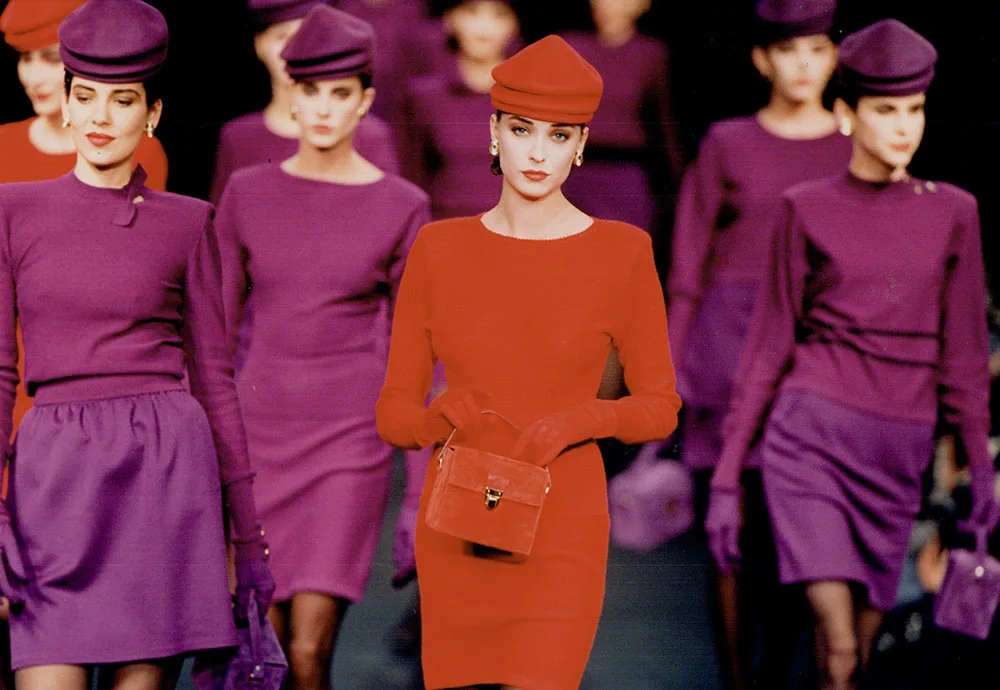
These were the clothes Rykiel wanted to wear herself – but her thoroughly modern idea at a time when couturiers were style dictators, was that her customers to put their own spin on her gear. “I try to make garments but after that I hope the woman will make her own personality,’ she told the New York Times in 1969. “It is not for me to dress her like a doll.”
That newspaper was already calling her the “grand dame of the sweater” in 1972, although as Rykiel herself admitted many times, she had no idea how to knit herself. She didn’t sketch or drape either, since she had no classical fashion training, but she was the consummate stylist.
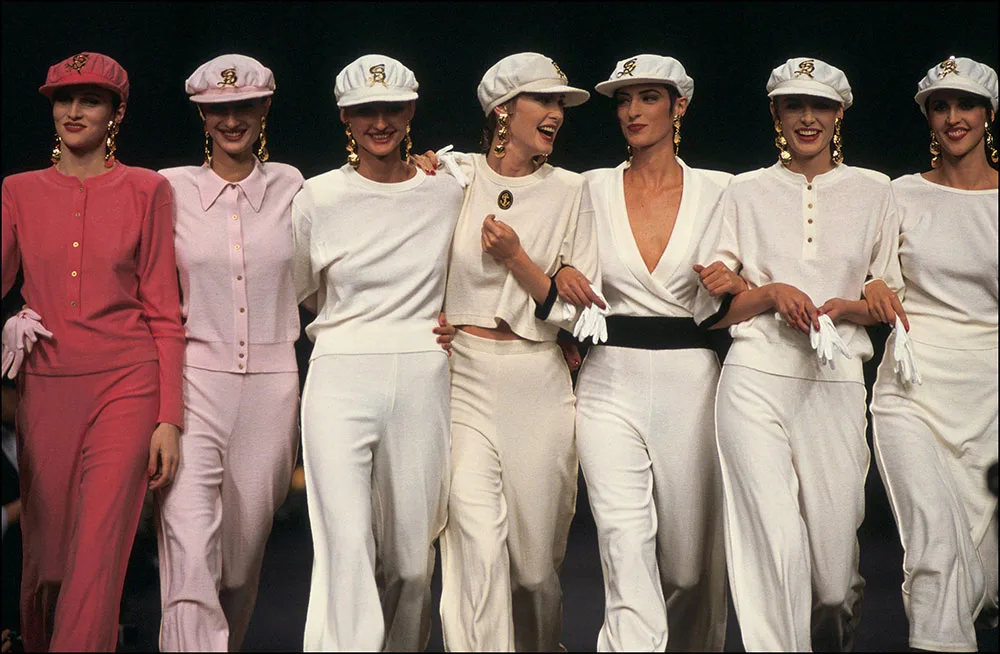
A key fashion scene figure in the ‘70s (like her peer Diane von Furstenberg she was the subject of a Warhol portrait), Rykiel continued to evolve her vision and grow her business through the ‘80s and ‘90s, launching accessories, men’s and childrenswear, fragrance and cosmetics. She will be missed.
 Getty
Getty
